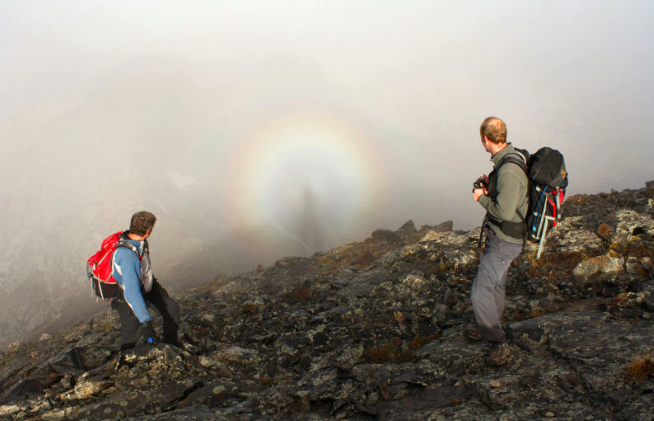Then the eleven disciples went away into Galilee, to the mountain which Jesus had appointed for them. When they saw Him, they worshiped Him; but some doubted.
-- Matthew 28:16f.
The unique word for doubt here is used elsewhere in the NT only of Peter when walking on the water. Apparently doubt and Peter go together in Matthew's mind.
Immediately Jesus reached out with His hand and took hold of him, and said to him, "You of little faith, why did you doubt?"
-- Matthew 14:31
Peter does not figure in the resurrection narrative of Matthew, and only indirectly figures in Mark. In Luke Peter acts as an investigator of the empty tomb claim of the women, but comes away only with questions. He is also named as a recipient of a special appearance of Jesus, but this is so perfunctorily reported it is strange. A fuller account involving him is provided by John, which contrasts with the presentations of Matthew and Mark which refer to the persistent incredulity of the eleven summarily.
In John 21 the three core intimates of Jesus, Peter, and James and John the sons of Zebedee, go back to their old lives, despite seeing the resurrected Jesus in John 20 gladly. The impression is anti-climactic, to the extent that some see two competing and separate narrative endings to John in the accounts.
Doubting Thomas, privileged with a special appearance of Jesus in John 20, joins the three in John 21, as does Nathanael (of "in whom there is no guile" fame), and two others who are not named (probably Andrew is one, the brother of Peter and a partner with Peter in the fishing company, Zebedee and Sons).
That makes seven of eleven remaining disciples who do not go back to Jerusalem rejoicing as Luke would have it. They do not go into all the world making disciples after being clothed with power from on high. They go back to making a living in Galilee, about which Luke knows nothing. And it is Peter who leads them by example.
There were together Simon Peter, and Thomas called Didymus, and Nathanael of Cana in Galilee, and the sons of Zebedee, and two other of his disciples. Simon Peter saith unto them, I go a fishing. They say unto him, We also
go with thee. They went forth, and entered into a ship immediately; and
that night they caught nothing.
-- John 21:2f.
It all flies in the face of the robust conception of belief and a changed life which the resurrection is supposed to have elicited from his closest followers. How we get from this sorry business in Galilee in John to what the disciples supposedly later do with their lives in Luke/Acts in Jerusalem remains a mystery.
The traditions about the resurrection in the gospels are deeply unsettled.









